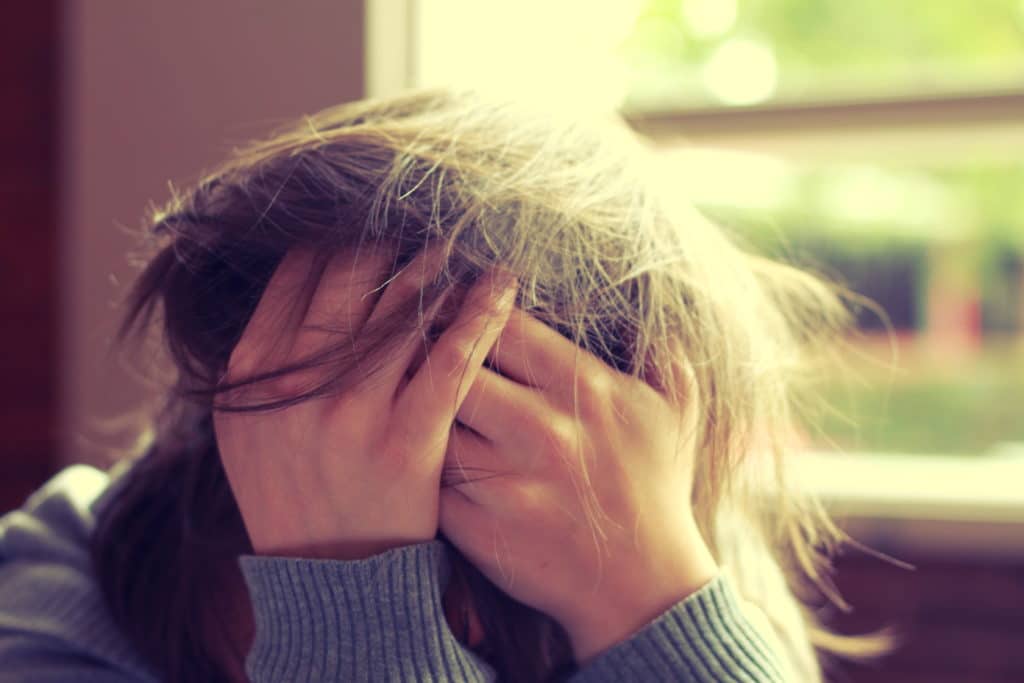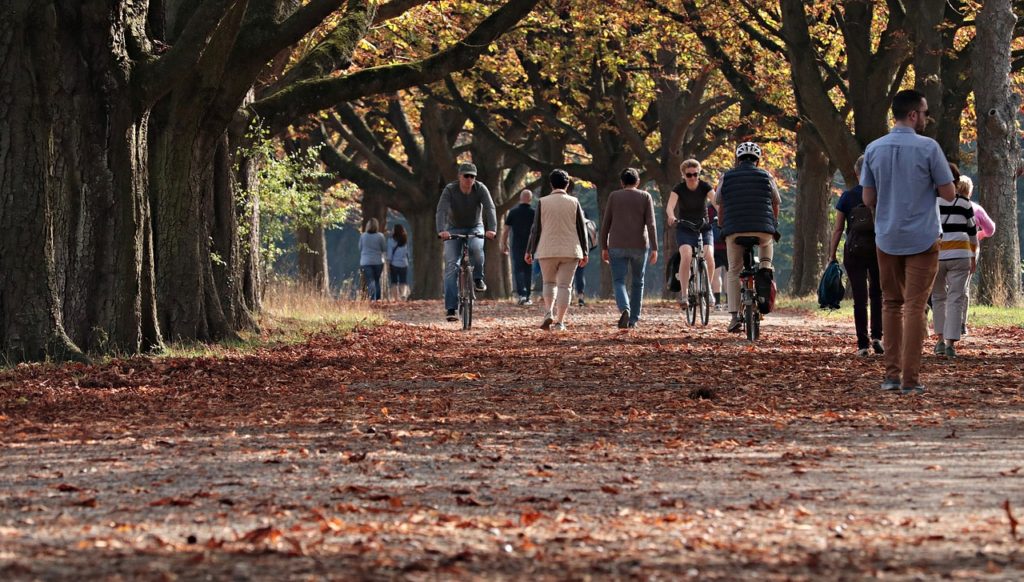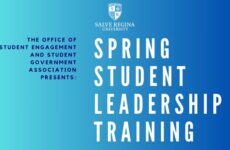By: Liam Cooney | Staff Writer
I was actually in quite a good mood the afternoon of Wednesday February 3rd, but you never can be too content in today’s world. Just getting back from a run around downtown Newport, I was feeling really good, the endorphins flowing through my body. Then suddenly, I got a call from my roommate, who said that we were “going into a full campus lockdown.” My heart immediately sank, and I was suddenly so frustrated and upset. I had quickly gone from a great high to an extremely irritated and disappointing low, which is not the first time that has happened in recent memory.
The same decision came again, (as it did pre-Christmas): do I head home for this unexpected pause, or opt to stay on campus? While I would be maintaining my own sort of privacy staying put in Newport, I would be alone: this place would once again become a ghost town. I did eventually opt to stay on campus, thinking I could continue to focus on my classes (albeit completely from my freshman dorm room), with little to no distraction. I could maybe even challenge myself, as if I were a contestant on Naked and Afraid, having to make it a whole two weeks with little to no human interaction, as I assumed the campus would soon become empty.
The next mental hurdle to consider was what my closest friends, as well as my roommate Cameron, would decide to do. Well, all of them quickly agreed that they were heading home, which was kind of a huge emotional blow, after I had already decided that I preferred to stay on campus. It made me say, “well, this may or may not completely suck.”
This comes after the events of the past twelve months for students on Salve Regina’s campus. Consider having to flip the table sign over at Miley, having to wipe down your desk after class, constantly reiterating COVID-19 guidelines, or even biking as fast as you can to class, while it’s snowing, with a mask on, on a bike that has no working breaks… Consider all of these circumstances, and it must be acknowledged that the mental health of many students right now is, at the very least, compromised. While the physical health and safety of all of us – especially those older individuals, or individuals with pre-existing conditions – is in many ways threatened, so is our mental health.
“Overall, I felt as if things would never change, and the quarantine would never end… You feel work, social life, and athletic schedules are conflicting and piling on top of each other, which is quite stressful.”
Speaking of fear and struggle, but am I the only one scared of suddenly being put in quarantine? Or, as my roommate Cameron Stein calls it, “The Q”? Perhaps it’s because I have narrowly escaped having to isolate myself, or because my roommate, Cam, has now been placed in quarantine two times this semester: yes, that is correct, two separate ten-day quarantines, within a roughly two-month time frame. I’m not saying quarantines aren’t needed to slow the spread, but it’s the constant fear and terror of such a random possibility that has been playing with my head this entire year.
Maybe it’s FOMO, because when interviewing Cameron via e-mail, he noted that, “It feels as though things are passing by without your control, which is hard to grasp.” Now his second time in “The Q,” it has begun to seriously take a toll on him, as it would for anyone in a similar circumstance. “I had been in quarantine previously for being a close contact, and I was frankly tired of having to isolate and I was ready for life to be normal again. Overall, I felt as if things would never change, and the quarantine would never end… You feel work, social life, and athletic schedules are conflicting and piling on top of each other, which is quite stressful.”
I am feeling so fortunate that I narrowly escaped any sort of quarantine period, and I’m sure someone like Cam would do anything to switch places with me right now. However, challenges still remain for myself and other students on campus who are not isolated, and Cam will once again face these realities (although I’m sure at first he will feel like a bird set free), when he is officially out of The Q…
In speaking with other members of the student body, including freshman student Marina Kazmierczak, it becomes clear that the stresses and general fear festering throughout the student population are real, and likely won’t go away anytime soon. Marina, who has already been flying solo this semester as her roommate decided to opt for full-time remote learning, tells me her first year of college has been like nothing she could have ever imagined. Because of the strict (but necessary) social distancing guidelines, it has been “hard to socialize and meet new people, which is something your freshman year is all about.” While she says she is truly “hoping for a COVID-free fall 2021 semester,” she understands the reality of present day, and that this new way of life won’t simply disappear.

All of the social distancing, precautionary measures, and COVID-19 guidelines are put in place as an attempt to stop the spread of this disease. These initiatives however, while needed, have produced an incredible amount of negative side effects. It should be obvious, but I would argue it isn’t. The toll this is taking on the mental health of not only Salve Regina students, but also staff, faculty, and families, is common but not commonly recognized. With so much focus on what we can quantify – data, contact tracing, positive cases, etc. – we have forgotten about what isn’t quite as easy to see. This was always been the case for mental health and the general well-being of any person even pre-COVID: it wasn’t quite as easy to see as a broken leg or a cut on the lip. However, this part of our community health is at a potentially historic low and is an issue that must be addressed in its own right.
In my opinion, the University has taken all the steps necessary to help stop the spread here on campus, with the ultimate goal of remaining open for a successful 2020-2021 calendar year. With definite hiccups along the way, that goal has at times seemed to have become a hopeful one, rather than a sure thing. Where I would criticize what has been done thus far, is that while the physical health of us all has been talked about so much – and for good reason – little has been said about the mental health of students. These realities are the farthest thing from typical, as spring sports are up in the air, parents cannot just visit as they please, and friends and significant others cannot visit you on campus. Although Salve has done the best they can to contain the spread, they have fallen short in terms of making this the best experience for the mental health of their students. Implementing new rules takes a toll on the people left to deal with it, even if the guidelines implemented are once again, needed and necessary.
What I would ask of the University is for a more well-rounded approach to combatting COVID-19. To only deal with the actual disease itself is, in my opinion, shortsighted. As with anything in this world, there is never just one aspect of an issue to look at. This one in particular has caused an incredible snowball effect that has changed all of our lives in unique ways. And so, I would suggest some sort of mental health, on-campus initiative, promoted by the school itself. This can include mental health walks, similar to the one for Black Lives Matter during the fall, as well as mental health outreach groups. The opportunity for such events as these are ones I’m quite sure many students would take advantage of. Virtual bingo doesn’t connect a community under hope quite like events along these lines would. For Salve to continue to keep this community healthy and safe, Coronavirus is not the single and only thing we need to fight.

With all this being said, it has never been more important to check up on those you care about. Although it may seem like someone is doing just fine, they may be truly struggling inside. I think it’s safe to say we all are at least frustrated with the current situation, some dealing with it much worse than others. It is more than okay to be struggling right now, as it always has been. If you need anything, reach out to a friend, visit Salve counseling, speak with your parents or those who truly care about you: there is no shame in any of that. You may happen to think you’re alone in these emotions, but I can tell you, you most certainly are not. Just this week alone I have been happy, mad, frustrated, and then completely normal again. Can’t you say the same?
Stopping the spread of COVID-19 here on campus and around our world is the number one objective, but the side effects of this pandemic are real, with implications that are just as pressing. Let’s get through this together – I just can’t wait for the day when this all seems normal again. I won’t lose hope that that day is coming soon.
Cover Image: Stress by Firesam! on Flickr is licensed under CC BY-ND 2.0.













